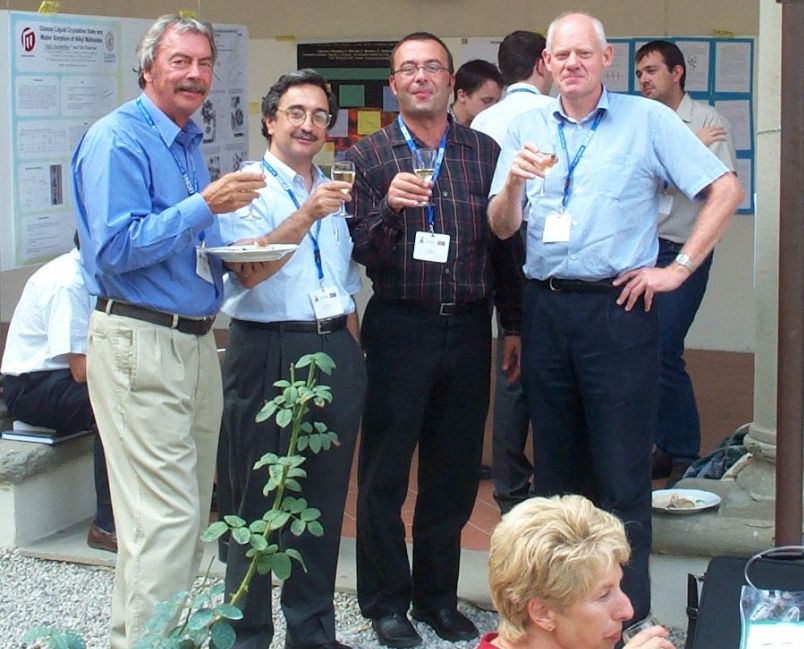
The Rhodia award of ECIS for the year 2003 is donated to Prof. Henk Lekkerkerker from the Debye Research Institute of the Utrecht University for his pioneering work on ordering of colloids.
Prof. Lekkerkerker received his Ph.D. in 1971 from the University of Calgary for his thesis “A Theoretical Study of Light Scattered from Chemically Reactive Systems”. He then returned to Europe started an academic career in Belgium and in 1974 became professor of Theoretical Physical Chemistry at the Free University Brussels. From there he moved in 1985 to Utrecht University, back to the roots where his studies had begun. There he is professor of physical chemistry, has served as director of the Debye institute, as vice dean and is now dean of chemistry. He has received many honours, and invited lectureships and is also member of the Royal Dutch Academy of Sciences.
The work of Prod. Lekkerkerker concerns the ordering of hard particles, a subject that has previously fascinated many physicists as models to understand crystalline ordering and is now receiving tremendous and attention in view of application perspectives of photonic crystals. The work reveals the importance of entropic interactions at many length scales, i. e. translational and rotational degrees of freedom of anisotropic particles as well as internal degrees of freedom of polymers. This has led to a very deep understanding of ordering phenomena such as phase diagrams, control of phases and properties. Recent advances highlighted in a Nature Review (416(2002) 811) concern the kinetics of ordering.
The work of Prof. Lekkerkerker is distingguished by a most original combination of Theoretical Chemistry and Physics, Inorganic and Organic Surface Chemistry to prepare particles with defined characteristics, and Physical Chemistry to characterize the systems. This has tremendously advanced colloid science bridging new fundemental science and exciting applications. The ECIS is proud to have this prominent scientist, who also has served as its president 10 years ago, as one of its leading figures with strong engagement in European collaboration.
